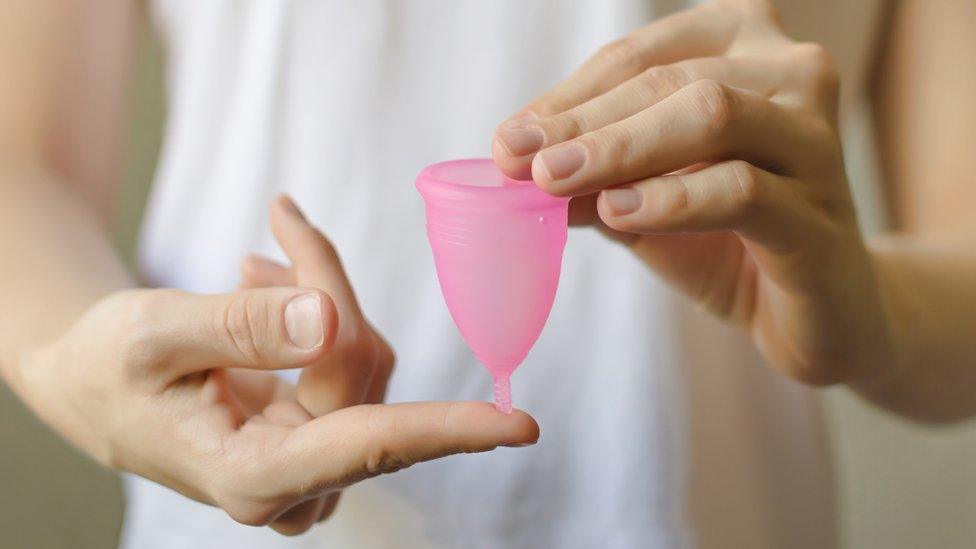Premenstrual dysphoric disorder makes women 'suicidal'
- Published
Thousands of women spoke to the BBC about their experiences of PMDD
Women can feel suicidal from a "stigmatised and trivialised" premenstrual condition, the BBC has heard.
An estimated one in 20 women are affected by premenstrual dysphoric disorder (PMDD), external which can cause extreme anxiety and depression each month.
Around 200 women have shared their experiences.
140 said they felt suicidal in the days before their period, with 60 saying they had tried to take their own lives.
Eighty of the women said they had self-harmed during that time.
The cause of the severe disorder is unknown.
A leading Welsh academic in women's reproductive mental health has said disorders are "stigmatised and trivialised".
'Why do I feel so sad?'

Tanya Spence-Kelly said one of her "most troubling" symptoms is suicidal thoughts
Tanya Spence-Kelly, 27, from Pontyclun, Rhondda Cynon Taff, who contributed to the research, said she first experienced symptoms more than a decade ago.
"I just remember being about 14 years old in my bedroom and just crying my eyes out and not knowing why I was crying, and not knowing why I was upset and just thinking like, why do I feel so sad?" she said.
Tanya said one of her "most troubling" symptoms is suicidal thoughts.
"I've had them for so long, because it happened since I was 13 to 14 years old, that's almost kind of become a normal part of who I am," she said.
Sarah Nowell, 38, from Newport, was diagnosed with the condition last year.
"It's just affected my whole life without me even realising it," she said.
"I think it just feels like you've sort of been robbed of those years where you could have been enjoying it a lot more."
Understanding the condition
Although Sarah now feels more comfortable talking to those around her about the diagnosis, she thinks there is still a way to go in the understanding of the condition.
"If I have a broken leg people will be flocking around here to bring me things or ask if I'm okay," she said.
"But I think a lot of the time, people don't even ask if I am okay and it can feel quite lonely."
Dr Arianna Di Florio has set up Wales' first "second opinions" clinic, focussing on reproductive mental health problems, with Cardiff University and Cardiff and Vale University Health Board.
One of her primary areas of research is premenstrual dysphoric disorder.
"Reproductive psychiatric disorders are important disorders and serious medical issues yet they are still stigmatised and trivialised, and this creates a vicious circle in which stigma prevents and hinders robust research, and the consequent lack of knowledge feeds into stigma," she added.
For information and support on mental health and suicide, access the BBC Action Line.
- Published11 March 2020

- Published1 July 2020

- Published26 February 2020
